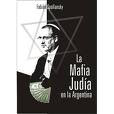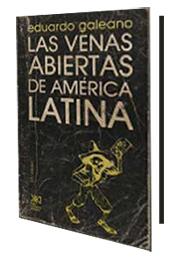Foto aérea de la central nuclear de Dimona
MUNDO ARABE.ORG
24/05/2010, agencias.
Israel ofreció vender cabezas nucleares al régimen segregacionista surafricano en 1975, según documentos secretos que constituyen la primera prueba documental oficial de la posesión de armas atómicas por el Estado israelí.
Minutas de las reuniones celebradas por altos dirigentes de ambos países en 1975 indican, según informa el diario británico The Guardian, que el ministro surafricano de defensa, Pieter Willem Botha, solicitó las bombas y su homólogo israelí Simon Peres, hoy presidente de Israel, se las ofreció "en tres tamaños".
Ambos políticos firmaron asimismo un amplio acuerdo que incluía una cláusula por el que se declaraba secreta la propia existencia de ese comprometedor documento. El documento, descubierto por el académico estadounidense Sasha Polakow-Suransky mientras preparaba un libro en torno a la estrecha relación entre los dos países, prueba que Israel dispone del arma atómica pese a su política de "ambigüedad" por la que ni lo niega ni lo confirma.
Según The Guardian, las autoridades israelíes trataron de impedir que el actual Gobierno surafricano, post-apartheid, desclasificara el documento a solicitud de Polakow-Suransky. Esa revelación cobra especial importancia esta semana en la que las conversaciones sobre no proliferación nuclear que se celebran en Nueva York se centran en la situación en Oriente Medio. También echa por tierra la pretensión israelí de presentarse como un país "responsable" que en ningún caso abusaría de sus bombas nucleares.
Polakow-Suranksy ha dedicado a este asunto un libro titulado The Unspoken Alliance: Israel's secrety alliance with apartheid South Africa, que se publica esta semana en Estados Unidos. Según el autor, entre las personas que asistieron a aquella reunión, el 31 de marzo de 1975, estaba el jefe del Estado mayor surafricano, el teniente general R.F. Armstrong. Éste elaboró inmediatamente un memorándum que señalaba los beneficios que supondría para el país la obtención de los misiles Jericó armados con cabezas nucleares. Poco más de dos semanas más tarde, el 4 de junio, el actual presidente israelí, Simón Peres, mantuvo una reunión con Pieter Botha, ministro de Defensa del entonces régimen racistas de Sudáfrica, en Zúrich en la que se trató del proyecto Jericó, rebautizado Chalet.
Las minutas secretas de esa segunda reunión señalan que "el ministro Botha expresó su interés en un número limitado de unidades de Chalet siempre y cuando estuviese disponible la carga correcta". Y sigue el documento: "Perez explicó que la carga correcta estaba disponible en tres tamaños. El ministro Botha expresó su gratitud y dijo que pediría consejo". Según el periódico británico, la expresión "tres tamaños" se refiere a los tres tipos de armas: convencionales, químicas y nucleares. Israel no había recurrido al eufemismo, "carga correcta" para referirse a armas convencionales y refleja el secretismo israelí en todo lo relativo a sus armas nucleares. Eso sólo puede referirse a armas nucleares ya que el memorándum del teniente general surafricano Armstrong deja perfectamente claro que Sudáfrica estaba interesada en los misiles Jericó sólo para transportar armas nucleares.
El acuerdo no llegó a firmarse finalmente en parte por el costo que suponía. Además, habría necesitado la aprobación final del primer ministro israelí, lo que no era del todo seguro, escribe The Guardian. Sudáfrica llegó a fabricar sus propias armas atómicas, seguramente con ayuda israelí, la colaboración entre ambos países en materia de tecnología militar se intensificó a lo largo de los años.
Por su parte, la Sudáfrica segregacionista suministró a Israel buena parte del uranio que este país necesitaba para desarrollar sus armas nucleares. Los documentos confirman la versión del ex jefe naval surafricano Dieter Gerhard, encarcelado en 1983 por espiar a favor de la Unión Soviética. Tras su liberación, Gerhard dijo que existía un acuerdo entre Israel y Sudáfrica bautizado Chalet consistente en una oferta por el Estado judío de armar ocho misiles tipo Jericó con "ojivas especiales", término que, según aquél, se refería a las nucleares.
Según los documentos publicados por el científico nuclear israelí, Mordechai Vanunu -quien trabajó durante años en Dimona y fue secuestrado en Europa por los servicios secretos israelíes y pasó 18 años de su vida en cárceles de ese país-, Israel posee más de 200 ojivas nucleares en su central nuclear de Dimona que nunca fue sometida a inspección de la Agencia Internacional de Energía Atómica.
Las informaciones sobre la cooperación nuclear entre Israel y Sudáfrica surgieron en 1979, cuando un satélite estadounidense detectó una radiación nuclear sobre el Océano Indico, que según la cadena estadounidense CBS correspondió a una prueba nuclear llevada a cabo por los dos países.
A principios de los sesenta, cuando la inteligencia norteamericana descubrió el objetivo real de la central nuclear israelí de Dimona, EE.UU. pidió que Israel se sometiera a inspecciones internacionales. Israel aceptó, pero con la condición de que fuesen los inspectores de EE.UU. y no los del Agencia Internacional de Energía Atómica los que llevaran a cabo las inspecciones. Además, todas las inspecciones deberían ser notificadas por adelantado. Los datos indican que los israelíes siempre conocían el plan de visita de los inspectores norteamericanos y pudieron ocultar el objetivo real del complejo (la fabricación de armas nucleares). Esta tarea de ocultamiento la habrían llevado a cabo instalando falsos muros y otros dispositivos antes de cada inspección. De modo que los inspectores informaron al Gobierno norteamericano de que sus inspecciones eran inútiles, ya que los israelíes restringían enormemente las áreas donde podían trabajar, hasta que finalizaron en 1969. Hoy, EE.UU. es el principal defensor del secretismo nuclear israelí.
To see this story with its related links on the guardian.co.uk site, go to http://www.guardian.co.uk/world/2010/may/23/israel-south-africa-nuclear-weapons
>
> Revealed: how Israel offered to sell South Africa nuclear weapons
>
> Exclusive: Secret apartheid-era papers give first official evidence of Israeli nuclear weapons
>
> Chris McGreal in Washington
> Monday May 24 2010
>
>
>
> http://www.guardian.co.uk/world/2010/may/23/israel-south-africa-nuclear-weapons
>
>
> Secret South African documents reveal that Israel offered to sell nuclear warheads to the apartheid regime, providing the first official documentary evidence [http://www.guardian.co.uk/world/2010/may/23/israel-south-africa-nuclear-documents" title="] of the state's possession of nuclear weapons.
>
> The "top secret" minutes of meetings between senior officials from the two countries in 1975 show that South Africa's defence minister, PW Botha, asked for the warheads and Shimon Peres, then Israel's defence minister and now its president, responded by offering them "in three sizes". The two men also signed a broad-ranging agreement governing military ties between the two countries that included a clause declaring that "the very existence of this agreement" was to remain secret.
>
> The documents, uncovered by an American academic, Sasha Polakow-Suransky, in research for a book on the close relationship between the two countries, provide evidence that Israel has nuclear weapons despite its policy of "ambiguity" in neither confirming nor denying their existence.
>
> The Israeli authorities tried to stop South Africa's post-apartheid government declassifying the documents at Polakow-Suransky's request and the revelations will be an embarrassment, particularly as this week's nuclear non-proliferation talks in New York focus on the Middle East.
>
> They will also undermine Israel's attempts to suggest that, if it has nuclear weapons, it is a "responsible" power that would not misuse them, whereas countries such as Iran cannot be trusted.
>
> South African documents show that the apartheid-era military wanted the missiles as a deterrent and for potential strikes against neighbouring states.
>
> The documents show both sides met on 31 March 1975. Polakow-Suransky writes in his book published in the US this week, The Unspoken Alliance: Israel's secret alliance with apartheid South Africa. At the talks Israeli officials "formally offered to sell South Africa some of the nuclear-capable Jericho missiles in its arsenal".
>
> Among those attending the meeting was the South African military chief of staff, Lieutenant General RF Armstrong. He immediately drew up a memo in which he laid out the benefits of South Africa obtaining the Jericho missiles but only if they were fitted with nuclear weapons.
>
> The memo, marked "top secret" and dated the same day as the meeting with the Israelis, has previously been revealed but its context was not fully understood because it was not known to be directly linked to the Israeli offer on the same day and that it was the basis for a direct request to Israel. In it, Armstrong writes: "In considering the merits of a weapon system such as the one being offered, certain assumptions have been made: a) That the missiles will be armed with nuclear warheads manufactured in RSA (Republic of South Africa) or acquired elsewhere."
>
> But South Africa was years from being able to build atomic weapons. A little more than two months later, on 4 June, Peres and Botha met in Zurich. By then the Jericho project had the codename Chalet.
>
> The top secret minutes of the meeting record that: "Minister Botha expressed interest in a limited number of units of Chalet subject to the correct payload being available." The document then records: "Minister Peres said the correct payload was available in three sizes. Minister Botha expressed his appreciation and said that he would ask for advice." The "three sizes" are believed to refer to the conventional, chemical and nuclear weapons.
>
> The use of a euphemism, the "correct payload", reflects Israeli sensitivity over the nuclear issue and would not have been used had it been referring to conventional weapons. It can also only have meant nuclear warheads as Armstrong's memorandum makes clear South Africa was interested in the Jericho missiles solely as a means of delivering nuclear weapons.
>
> In addition, the only payload the South Africans would have needed to obtain from Israel was nuclear. The South Africans were capable of putting together other warheads.
>
> Botha did not go ahead with the deal in part because of the cost. In addition, any deal would have to have had final approval by Israel's prime minister and it is uncertain it would have been forthcoming.
>
> South Africa eventually built its own nuclear bombs, albeit possibly with Israeli assistance. But the collaboration on military technology only grew over the following years. South Africa also provided much of the yellowcake uranium that Israel required to develop its weapons.
>
> The documents confirm accounts by a former South African naval commander, Dieter Gerhardt ? jailed in 1983 for spying for the Soviet Union. After his release with the collapse of apartheid, Gerhardt said there was an agreement between Israel and South Africa called Chalet which involved an offer by the Jewish state to arm eight Jericho missiles with "special warheads". Gerhardt said these were atomic bombs. But until now there has been no documentary evidence of the offer.
>
> Some weeks before Peres made his offer of nuclear warheads to Botha, the two defence ministers signed a covert agreement governing the military alliance known as Secment. It was so secret that it included a denial of its own existence: "It is hereby expressly agreed that the very existence of this agreement... shall be secret and shall not be disclosed by either party".
>
> The agreement also said that neither party could unilaterally renounce it.
>
> The existence of Israel's nuclear weapons programme was revealed by Mordechai Vanunu to the Sunday Times in 1986. He provided photographs taken inside the Dimona nuclear site and gave detailed descriptions of the processes involved in producing part of the nuclear material but provided no written documentation.
>
> Documents seized by Iranian students from the US embassy in Tehran after the 1979 revolution revealed the Shah expressed an interest to Israel in developing nuclear arms. But the South African documents offer confirmation Israel was in a position to arm Jericho missiles with nuclear warheads.
>
> Israel pressured the present South African government not to declassify documents obtained by Polakow-Suransky. "The Israeli defence ministry tried to block my access to the Secment agreement on the grounds it was sensitive material, especially the signature and the date," he said. "The South Africans didn't seem to care; they blacked out a few lines and handed it over to me. The ANC government is not so worried about protecting the dirty laundry of the apartheid regime's old allies."
>
>
> If you have any questions about this email, please contact the guardian.co.uk user help desk: userhelp@guardian.co.uk.
>
>
> guardian.co.uk Copyright (c) Guardian News and Media Limited. 2010
> Registered in England and Wales No. 908396
> Registered office: Number 1 Scott Place, Manchester M3 3GG
> Please consider the environment before printing this email.
> ------------------------------------------------------------------
> Visit guardian.co.uk - newspaper website of the year
> www.guardian.co.uk www.observer.co.uk
>
> To save up to 33% when you subscribe to the Guardian and the Observer visit
> http://www.guardian.co.uk/subscriber
>
> The Guardian Public Services Awards 2010, in partnership with Hays Specialist Recruitment, recognise and reward outstanding performance from public, private and voluntary sector teams.
> To find out more and to nominate a deserving team or individual, visit http://guardian.co.uk/publicservicesawards Entries close 16 July.
>
> ---------------------------------------------------------------------
>
> This e-mail and all attachments are confidential and may also
> be privileged. If you are not the named recipient, please notify
> the sender and delete the e-mail and all attachments immediately.
> Do not disclose the contents to another person. You may not use the information for any purpose, or store, or copy, it in any way.
>
> Guardian News & Media Limited is not liable for any computer
> viruses or other material transmitted with or as part of this
> e-mail. You should employ virus checking software.
>
> Guardian News & Media Limited
> A member of Guardian Media Group PLC
> Registered Office
> Number 1 Scott Place, Manchester M3 3GG
> Registered in England Number 908396
>
lunes, 24 de mayo de 2010
Suscribirse a:
Enviar comentarios (Atom)
























No hay comentarios:
Publicar un comentario